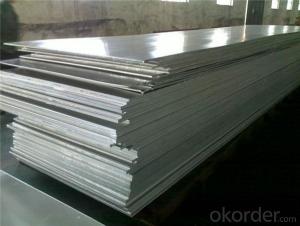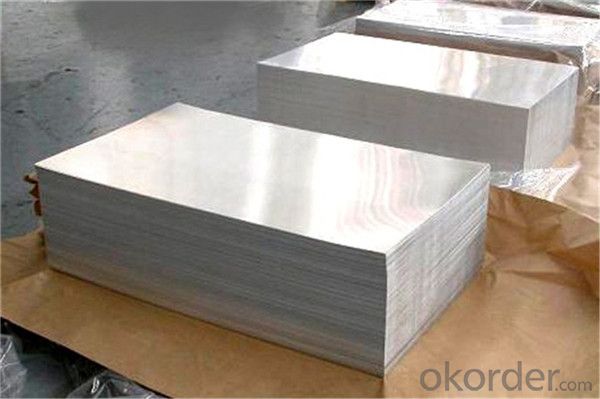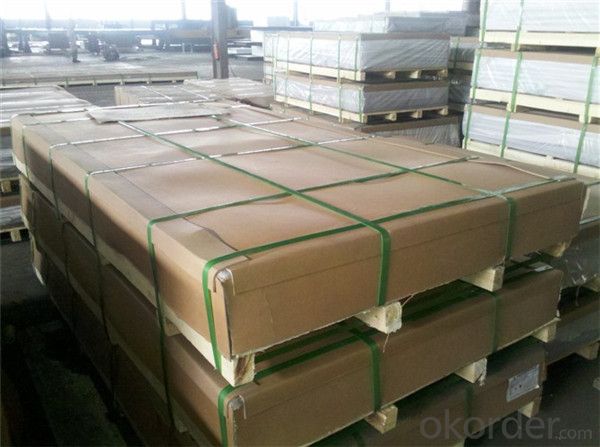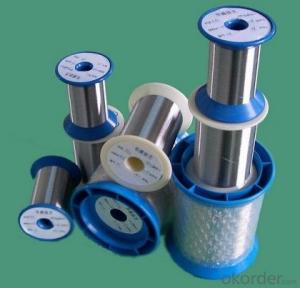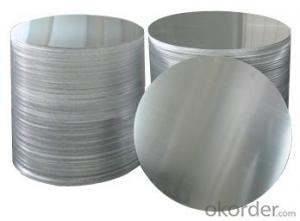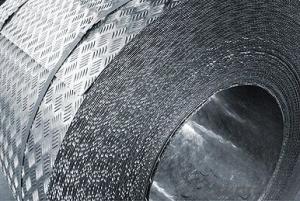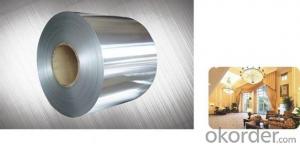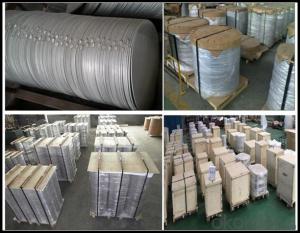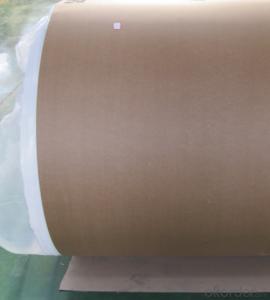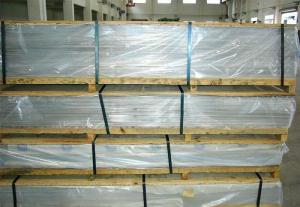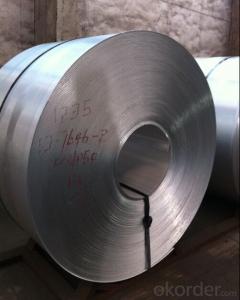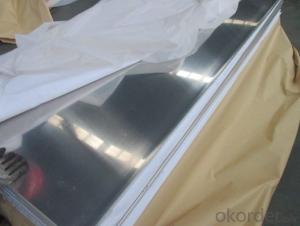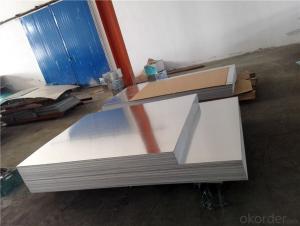Aluminum Sheets Arizona - Wholesale Price, Lowest Offer
- Loading Port:
- Shanghai
- Payment Terms:
- TT OR LC
- Min Order Qty:
- 5 m.t.
- Supply Capability:
- 100000 m.t./month
OKorder Service Pledge
OKorder Financial Service
You Might Also Like
Specification
1.specification
material: | Alloy or not | ||
thickness: | 1,3 series | 0.3-9.5mm | |
5series | 0.5-150mm | ||
6 series | 5-150mm | ||
7series | More than 6mm | ||
width: | 1,3 series | 900-1500mm | |
5 series | 900-1500mm | ||
6 ,7series | As your request | ||
Circulation size: (width*length)
| 1220*2440mm 1250*2500mm 1500*3000mm 1000*2000mm | ||
Usage : | Boat, plane, building, packaging, machine…. | ||
MOQ | 3 tons | ||
2.product show
Dear Customer, why do I have the confidence to let you buy our product ?
♥strict chemical composition , good hardness high safety performance
♥Oxide film thickness, corrosion resistance
♥Standard aluminum closed time, no rust
♥smooth surface, no burrs
Our VS others
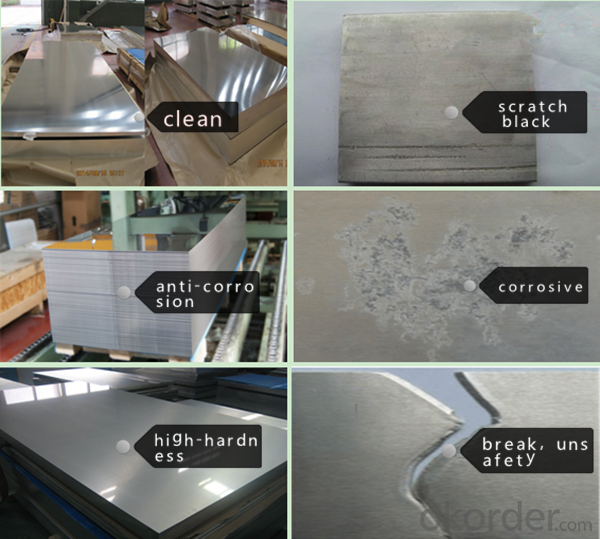
3.shipping:
20~25 working days & send samples:2--3 days after received your advance payment
Mode of transport | advantage | disadvantage | advice |
Express delivery | Fast(3—6days ),door to door wide area coverage | Volume & weight restricted | Good for small cargo |
Sea transpoet | Cheapest volume unlimited | Long sailing time influenced by climate and port conditions | Bulk cargo loose time |
Air transport | Fast(4—5days) simple packaging | The most expensive volume restrict | For valuable cargo urgent need |
Railway | Big volume more expensive | Tracking difficult transit organization may cause delay | Preferred in central Asia |
4.Product photos
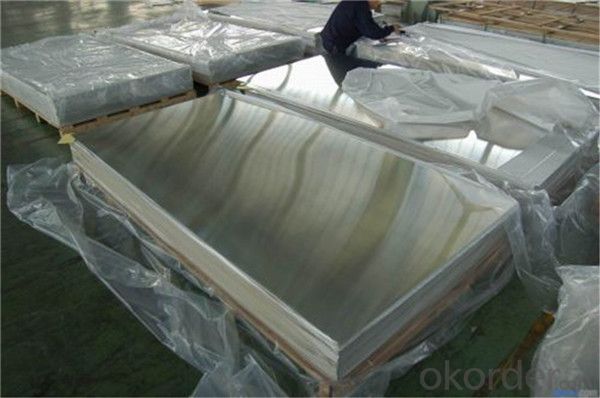
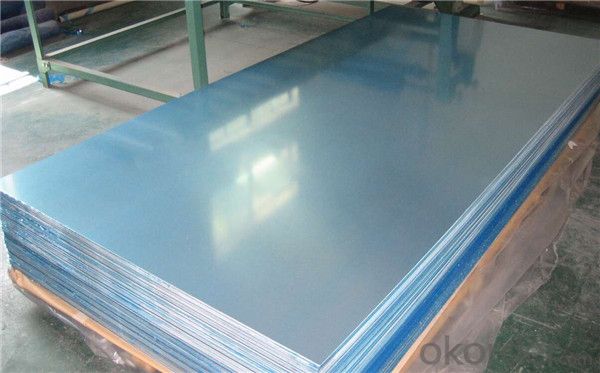
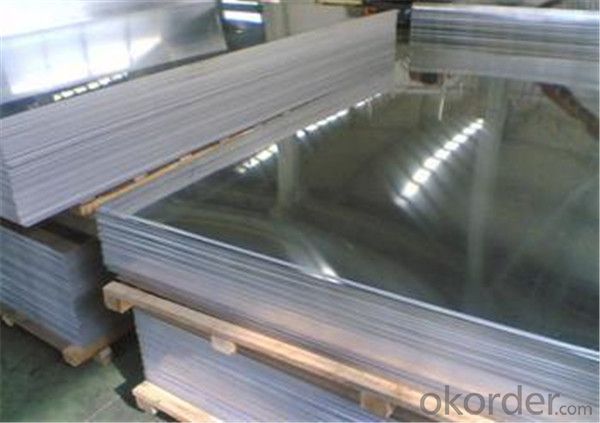
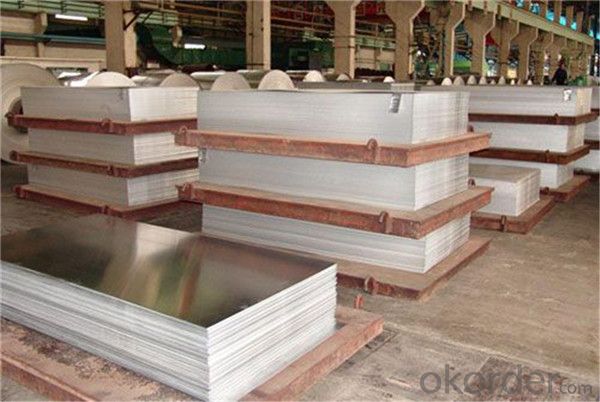
- Q: which kind of abraser should be used for deburring of aluminum sheet?
- you can use soft resin grinding stone.
- Q: This question asks for a list of various adhesive types that are suitable for bonding aluminum sheets together.
- <p>There are several types of adhesives used for bonding aluminum sheets, including epoxy adhesives, which are strong and resistant to heat and chemicals; acrylic adhesives, known for their flexibility and UV resistance; cyanoacrylate or super glue, which offers fast bonding; polyurethane adhesives, providing excellent adhesion and durability; and silicone adhesives, which are great for high-temperature applications. Each type has its specific properties and applications, making them suitable for different bonding requirements and environmental conditions.</p>
- Q: What type of aluminum plate does it contain?
- 1 * * * series aluminum sheet: stands for 1050, 1060, 1100. In all series, the 1 x x series belongs to a series with the largest amount of aluminum. Purity can reach more than 99%.2 * * * series aluminum sheet: 2A16 (LY16) and 2A06 (LY6). The characteristics of 2 * * * series of aluminum is high hardness, which belongs to the copper content is the highest, about 3-5%.
- Q: A solid aluminum sphere has a mass of 83 g.Use the density of aluminum to find the radius of the sphere in inchesExpress your answer using two significant figures.I can't figure this out :(
- Aluminum has a density of 2.702 g/cm^3. 83 g x (1 cm^3 / 2.702 g) = 30.7 cm^3 That's the volume of the Al sphere. The formula for the volume of a sphere is V = (4/3)(pi)(r^3) where r is the radius. 30.7 = (4/3)(3.1416)((r^3) 7.33 = r^3 1.94 cm = r 1.94 cm x (1 in / 2.54 cm) = 0.76 inches.
- Q: I am looking at buying a used 1983-84 Eldorado but have read some things about the reliability of the aluminum engine. Any thoughts? Thanks.
- 1984 Cadillac Eldorado
- Q: What is the typical elongation of aluminum sheets?
- The elongation of aluminum sheets can differ based on the grade and temper of the aluminum. Generally, aluminum sheets possess a greater capacity for elongation compared to other metals. Elongation pertains to a material's capability to stretch or deform without fracturing. Typically, aluminum sheets exhibit an elongation percentage between 10% and 30%, implying they can be stretched by that proportion of their original length prior to reaching their breaking limit. Such impressive elongation capacity renders aluminum sheets incredibly flexible and appropriate for a multitude of applications, including construction, automotive, aerospace, and manufacturing industries.
- Q: What oil does the aluminum plate stretch with?
- There are professional tensile oil, you can ask to pull the rice cooker liner manufacturers know, if not a lot of production, you can use peanut oil first try, the effect barely enough!
- Q: What are the different bending techniques for aluminum sheets?
- There are several bending techniques for aluminum sheets, including air bending, bottom bending, coining, and wipe bending.
- Q: Is aluminum sheet resistant to UV rays?
- Yes, aluminum sheet is resistant to UV rays. Aluminum naturally forms a protective oxide layer that acts as a barrier against UV radiation. This oxide layer helps to prevent the aluminum sheet from being damaged or degraded by exposure to the sun's UV rays. This makes aluminum sheet a suitable material for outdoor applications, where it can withstand prolonged exposure to sunlight without fading or deteriorating. Additionally, the reflective properties of aluminum further contribute to its UV resistance, as it can reflect a significant amount of the sun's rays, reducing heat absorption and potential damage.
Send your message to us
Aluminum Sheets Arizona - Wholesale Price, Lowest Offer
- Loading Port:
- Shanghai
- Payment Terms:
- TT OR LC
- Min Order Qty:
- 5 m.t.
- Supply Capability:
- 100000 m.t./month
OKorder Service Pledge
OKorder Financial Service
Similar products
Hot products
Hot Searches
Related keywords
